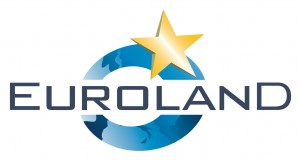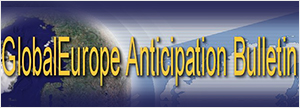A new entity requires new tools to be run properly and languages are a key-aspect in 21st-Europe success or failure. Indeed languages (at the crossroads of cultures and politics) are at the heart of the basic requirement of the European construction: creating unity while maintaining diversity (“in unam pluribus”).
{{Common languages and democracy}}
The challenge is quite easy to formulate: to build a Euro-Democracy, you need Euro-citizens; and “a Euro-Citizen is a/ anybody (we no longer talk about merely educated professional elites) b/ who speaks “European”” (true citizenship is based on the ability to communicate in the concerned political entity’s common language).
Euro-citizens need a European language to two different purposes:
1- to have a direct access to the European decision-making level – vertical democracy
2- to interact together and organize themselves – horizontal democracy
The vertical democracy calls for two opposite language solutions: either everyone learns the same language(s) (bottom-up) or the decision-making level communicates in everyone’s language (top-down). The second solution currently prevails and there’s no strong requirement at this stage to change this.
The horizontal democracy also calls for two solutions: everyone learns one vehicle-language or everyone learns everybody’s language. At first glance, the easiest solution is the first one; except that in Europe people find it important to have the choice of their second language. Therefore let’s be courageous and innovating; let’s develop the second idea…
{{Speaking European?}}
What would it mean to teach everyone everybody’s language on a primary- and secondary- school basis (i.e. for the benefit of all)?
Empires were always based on mono-linguistic systems using one common language (of course that of the masters) in their communication needs. Europe tries to invent new methods to work together, and even though French and English (and German and Spanish…) will always remain the big languages used professionally by the elites in their trans-European activity, for the big numbers of Europeans who must be more interconnected, what is needed is individuals who can travel abroad and make their way through, who can have simple conversations with almost anyone in Europe based on the fact that they are not lost in a foreign language and that their interlocutors feel the same regarding their own language, to make a long story short: people who can actually speak their own language and have a fair understanding of the others. Connecting the Europeans together on the very basis of each one’s language made transparent to all! It sounds a bit of unrealistic? In fact, no…
Languages are taught in a very rigorous and academic way, aimed for the pupils to control “perfectly” the vocabulary and grammar of one language. It is generally acknowledged that the success of this method varies greatly between the different countries in Europe; knowing that the places where language-teaching have the best results are usually providers of a multilingual environment and not only of better teaching-methods (e.g. The Netherlands as opposed to France).
{{Why not create a new European-languages class in school?}}
Based on the fact that more or less 4 big families of languages are to be found in Greater Europe (Latin, Germanic, Slavic and Greek), that most European languages are just a question of dosage of these four families and therefore that each European has more or less an access to the other languages within his own language, there are lots of un-used means to dis-inhibit people from the apparent alienation carried along the use of different languages in Europe.
Technically speaking, these classes should focus on vocabulary instead of grammar, on understanding instead of talking/writing, on accents instead of spelling, on resemblances instead of correctness… Showing the geographical organization of languages in Europe, focusing on etymologies, highlighting the recurrent vocabulary from one language to another, clarifying the rules of evolution of a word along the centuries in a given language or group of languages, explaining the inner-coherence of the pronunciation-systems…
These should be the contents to develop in such classes based on the audition of texts spoken in different languages, on language identification, on word recognition, on general meaning guesses… There really are means to change radically the way languages are taught today and to create a general ability to understand (and then speak) foreign languages. It is a question of mental attitude, and that is precisely forged by our education.
Building on European diversity and creating a net European added value
Beyond its No 1 objective (to open the pupil to the understanding of all European languages), such course would also open to the history, culture, migrations of Europe; and prepare perfectly for the in-depth learning of this or that specific language – European languages of course, but certainly also non-European ones.
The first advantage would contribute to prepare deeply European citizens/professionals. While the second advantage would build upon Europe’s important but under-exploited specificity and added value linked to its linguistic diversity, and give the Europeans a clear advantage globally speaking in terms of language ability


 LEAP2040 Toutes les informations et archives Europe2040
LEAP2040 Toutes les informations et archives Europe2040


